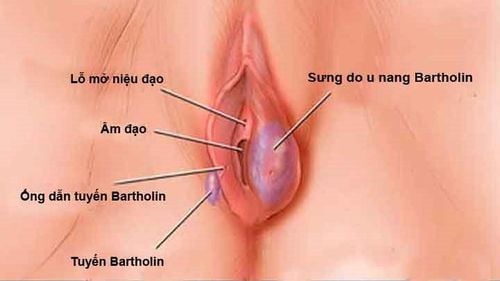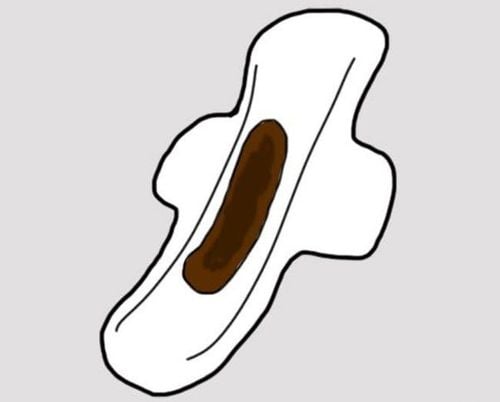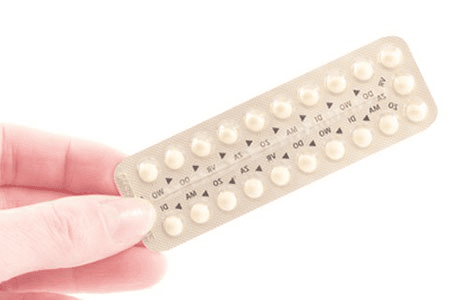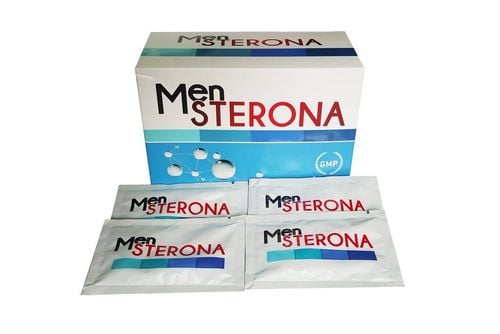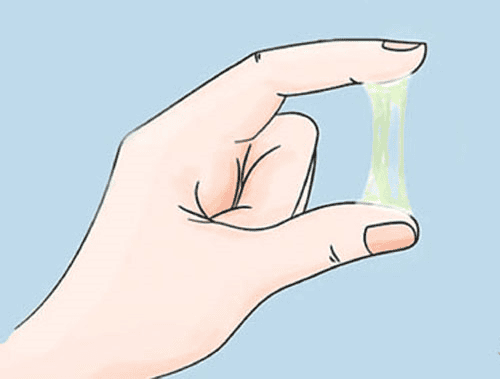This is an automatically translated article.
Using ovarian stimulation pills is one of the suggested solutions for infertile couples. There are two types of ovarian stimulants, oral and injectable. For families who want to have children through in vitro fertilization (IVF), the role of ovulatory drugs is crucial to success. However, we also need to be aware of the possible side effects when using fertility drugs.1. Side effects of ovarian stimulation drugs in assisted reproduction
Side effects are unwanted and unintentional symptoms caused by medications. The risk of side effects will depend on factors such as the type of drug, the dose of the drug (higher doses usually mean increased risk), and each person's background. In fact, it's difficult to predict how you'll react until you've taken the medication. In rare cases, fertility drugs can cause serious side effects. Therefore, let your doctor know if you're experiencing worrisome symptoms, even if you're not sure if they're drug-related. Below are the common side effects of fertility drugs in general and ovulation-stimulating drugs in particular.1.1 Causes ovarian hyperstimulation syndrome (OHSS)
Ovarian hyperstimulation is one of the serious side effects of ovarian stimulators. Fertility drugs intentionally stimulate the ovaries to produce more eggs than usual. With OHSS, the ovaries are dangerously overstimulated. This is especially more common for people who are using in vitro fertilization (IVF), but it is also likely to happen even for those who are taking Clomid and gonadotropin for assisted reproduction. . Most cases of OHSS are mild, but severe OHSS can also occur. In rare cases, OHSS can lead to blood clots and kidney failure. In severe cases of ovarian hyperstimulation syndrome it can seriously affect fertility and even life. Catching symptoms quickly and getting treatment early are key to dealing with these side effects of medication.SEE ALSO: Things to know after injecting fertility drugs
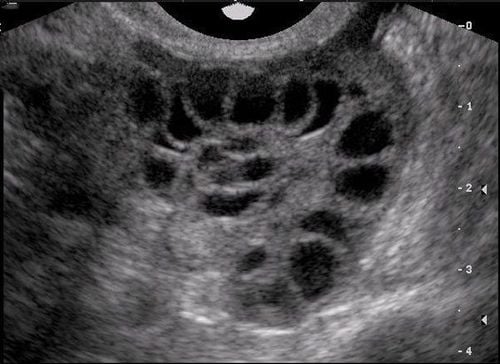
Thuốc kích trứng có thể gây quá kích buồng trứng
1.2 Ovarian failure
Abuse of ovarian stimulants can lead to a decline in the ovaries and their functions, making conception even more difficult. Once the function is reduced, the desire for sex also decreases due to the hormonal changes.1.3 Risk of multiple pregnancy
You may already know about the risk of multiple pregnancy when using fertility drugs in general and ovarian stimulating drugs in particular. The risk of a miscarriage will depend on what fertility treatment you're taking and what medications you're taking. For example, the risk of having twins is three times higher with gonadotropins than with Clomid. Up to 30% of pregnancies caused by gonadotropin fertility drugs are multiple pregnancies. Two-thirds of those pregnancies are twins and one-third are triplets or advanced pregnancies. In some cases, infertile couples may want twins or triplets, but this is by no means the best choice for you or your baby.
Sản phụ có thể mang đa thai khi dùng thuốc
1.4 Risk of malformations in the fetus
Some medicines have ingredients that can cause harmful side effects on the fetus and cause birth defects. To avoid this, you should take the medicine exactly as prescribed by your doctor.1.5 Ectopic pregnancy
Women taking gonadotropins have a slightly increased risk of ectopic pregnancy. Accordingly, if an ectopic pregnancy is not detected and intervened early, it is likely to endanger the life of the pregnant woman. If you feel pain in your pelvis, contact your doctor for help right away.1.6 Ovarian torsion
Ovarian torsion is a complication of ovarian hyperstimulation syndrome. Two percent of women taking gonadotropins will develop ovarian torsion, but with the right precautions, including limiting activity, this complication is very rare. Fertility drugs work to make the ovaries bigger, but sometimes, it can cause the ovaries to twist on their own, blocking the blood supply. In this case, your doctor may recommend surgery to remove the torsion or even remove the ovaries.
SEE ALSO: Is an inadequate dose of fertility drugs harmful?
2. Reduce side effects and risks
Side effects are inevitable when using any medicine. However, there are some things you or your doctor can do to reduce the risk they pose. Here are suggested solutions that you can avoid or reduce some of the side effects caused by medication:
You may consider taking the medicine at night or taking it with your meal. Talk to your doctor about the best time and way to take your medication. It is advisable to start with the lowest dose and then increase the dose if there is no effect, rather than starting with a high dose. Tell your doctor if side effects occur, even if they are mood-related (which many people don't tell their doctor). Suggest an alternative medicine if needed. Close cycle monitoring is important to reduce the risk of multiple pregnancies. If you are taking gonadotropins injections or oral Clomid, an ultrasound can be helpful to determine how many potential follicles are developing. Your doctor may cancel your cycle if your doctor thinks the risk of multiple pregnancy is high. Accordingly, listen to your doctor for the best options. Remember that a multiple pregnancy puts your and your future children's health (and even your life) in jeopardy. With IVF treatment, your risk of multiple pregnancy can be reduced with a single embryo transfer (SET). However, this only applies to special cases. Talk to your doctor about your options. Beware of fertility clinics that go overboard in advertising the success of their infertility treatments. Remember, even with careful monitoring and a responsible doctor, you can still develop OHSS or become pregnant with twins or more. In that case, the best thing to do is follow your doctor's treatment advice and take care of yourself. Good prenatal care can reduce the risk of a multiple pregnancy.

Để giảm tác dụng phụ của thuốc kích trứng bạn cần tham khảo ý kiến bác sĩ
3. Coping with fertility drugs side effects
To deal with the side effects that fertility drugs in general and ovarian stimulation drugs in particular can cause. Here are some suggestions for you to consider:
First, you should talk to your doctor about possible side effects. Let them know what you're going through so your doctor knows exactly what you're having. Tylenol (or acetaminophen) is the best suggestion for a headache or cramping. Talk to your doctor first, though, but usually acetaminophen is the pain reliever of choice during fertility treatment. The medications ibuprofen (Advil, Motrin) or naproxen (Aleve, Midol) are thought to interfere with ovulation and embryo implantation. Some over-the-counter medications are potentially unsafe when trying to conceive. So be careful when taking these drugs. If you feel hot flashes, don't wear too many thick clothes and avoid drinking hot drinks as it will make the hot flashes worse. If you are wearing many layers of clothing and feel your body heat up suddenly, taking off some clothes can help in this case. Keep enough water for the body. Drink plenty of water during fertility treatment because the hormones can dehydrate you and make you feel worse. While bloating may seem counterproductive, make sure you drink extra fluids throughout your treatment. Reach out for support. Infertility and infertility treatment can make you feel vulnerable and emotional. Add some mood swings because of the side effects of certain hormones. The side effects and risks of fertility drugs depend on the medicine you are taking. Oral fertility drugs such as Clomid or letrozole have milder side effects than injectable fertility drugs such as gonadotropins.

Thuốc kích trứng có thể gây ra một số tác dụng phụ
Vinmec IVF Reproductive Center is the address of infertility - infertility treatment chosen by many couples. So far, the Center has performed fertility support for over 1000 infertile couples with a success rate of 45%-50%. This rate is equivalent to developed countries such as the UK, USA, Australia,...
The center gathers a team of leading experts in the field of obstetrics and gynecology nationally and internationally, trained in centers leading in the world such as in the US, Singapore, Japan, Australia and famous fertility centers in the world.
With a high level of expertise and extensive experience, Vinmec IVF Center's experts are capable of synchronously and comprehensively deploying the most advanced assisted reproductive techniques today, helping realize the dream of becoming a parent of hundreds of families across Vietnam.
Please dial HOTLINE for more information or register for an appointment HERE. Download MyVinmec app to make appointments faster and to manage your bookings easily.
Reference source: verywellfamily.com,




